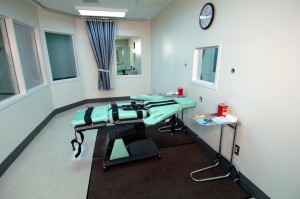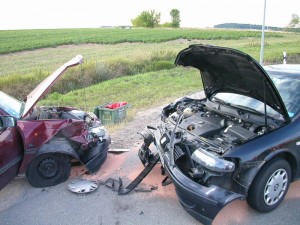J. Bradley Smith of Arnold & Smith, PLLC answers the question “Should I talk to the police?”
Driving-while-Latino makes you ten times more likely to be pulled over in Alamance County for committing a traffic infraction. That is according to a 2012 statistical study commissioned by the United States Department of Justice. Sheriff Terry Johnson told officers manning vehicle checkpoints to “go out there and get me some of those taco eaters,” according to a civil rights lawsuit brought against Johnson in 2012. A trial in that case began on Tuesday in United States Federal Court for the Middle District of North Carolina.
 In its lawsuit, the United States asked the court to order Johnson and sheriff’s deputies to stop discriminating against Latinos and to adopt systems and policies that eliminate discrimination. Johnson denied the allegations in his answer to the lawsuit and moved for dismissal.
In its lawsuit, the United States asked the court to order Johnson and sheriff’s deputies to stop discriminating against Latinos and to adopt systems and policies that eliminate discrimination. Johnson denied the allegations in his answer to the lawsuit and moved for dismissal.
In order to prove its case, the United States must show that law-enforcement officers engaged in “a pattern or practice” of activities that denied Latinos in Alamance County their Constitutional rights. One of the most difficult elements of proving such a claim is demonstrating that the accused had “discriminatory intent.”
The United States has used Johnson’s past statements, emails sent to and from the Alamance County Sheriff’s Office, and statistics on law-enforcement activities in an effort to show Johnson’s alleged bias. Johnson has responded that statements of opinion or political belief have been misconstrued by the government as evidencing bias on the part of law-enforcement officers against Latinos. Regarding law-enforcement efforts, Johnson alleged in his trial brief that, according to the Drug Enforcement Agency and Immigrations and Customs Enforcement, ninety-percent of drug traffickers in Alamance County are Mexican, while one-hundred percent of drug and money couriers are Mexican.
 Charlotte Criminal Lawyer Blog
Charlotte Criminal Lawyer Blog










